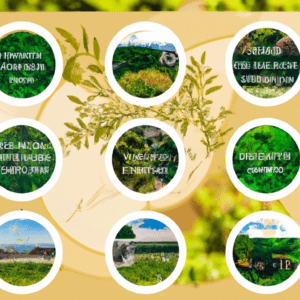Hey there, reader! Let’s just dive straight in, shall we? Picture yourself in a bustling marketplace. You’re surrounded by a sea of choices, from imported, shiny, and plastic-wrapped produce, to fresh locally-grown, vibrant fruits, and veggies on wooden stalls. You’re at a crossroad, a decision-tree of sorts, and it’s not just your tummy at stake but also our beautiful blue planet.
Turning your cart towards the locals’ produce, towards the organic items, now that’s hitting two birds with one stone! It’s akin to making a down payment for the health of both you and the world around. You see, it’s kind of heartwarming knowing that your bowl of greens was picked just a couple of miles away. It’s genuinely gratifying recognizing that your hard-earned cash is boosting someone from your community and not some multi-million dollar corporation halfway across the planet. Plus, the fact that your salad didn’t need to hitch a jet ride to get to your plate? That’s the icing on the cake.
By supporting local farmers, you’re fueling not just the economy but also aiding in chopping down those nasty food miles – the distance the food travels right from the farm to your plate. Fewer miles mean fewer greenhouse gas emissions. That apple from your local farmer’s market had a much shorter journey and a tinier carbon footprint than the one that took a plane ride from a different continent!
Go a step further and add organic to the mix, and you’re adding another shade of green to your choices. Organic farming is like the friendly neighborhood superhero of farming. It fights off nasty pesticides and synthetic fertilizers, conserves our precious water, and works towards a better soil and air quality. It fosters biodiversity and is smart enough to capture more carbon dioxide than conventional farming. Major win if you ask me!
Organic foods are far from all the questionable practices. They say no to antibiotics, growth hormones, and genetically-modified organisms (GMOs). So, not only is it performing wonders for Mother Earth, but it’s also taking good care of your health. Trust me when I say this, the taste of that organically and locally grown, crisp carrot just pulled from the earth? That’s a different league altogether—no supermarket aisle counterpart can match up.
Handpicking local and organic foods is like waving a magic wand that reduces your carbon footprint and takes you on this path of good health. A short walk through a laidback farmers market can make you feel connected with the seasons and abundance of nature. It places you right in the circle of life, making you a part of the chain where your food comes.
Wrapping up the narrative, every food on your plate tells a story, embarks on a journey – tracing a footprint. going for local and organic options is like choosing a biopic of a noble journey rather than a thriller laced with dangerous stunts. It’s choosing a healthier self while positively impacting the environment by downsizing the carbon footprint of our food. Remember, we’ve got just this one Earth. Every choice counts.
TL;DR Key Points
- Buying local and organic contributes directly to your health and the health of the planet.
- Supporting local farmers reduces food miles and related carbon emissions.
- Organic farming avoids harmful chemicals, preserving biodiversity, and improving soil quality.
- Consumption of organic foods can enhance personal health and contribute to a sustainable environment.
- Choosing local and organic allows us to live a healthier lifestyle while reducing our carbon footprint.











